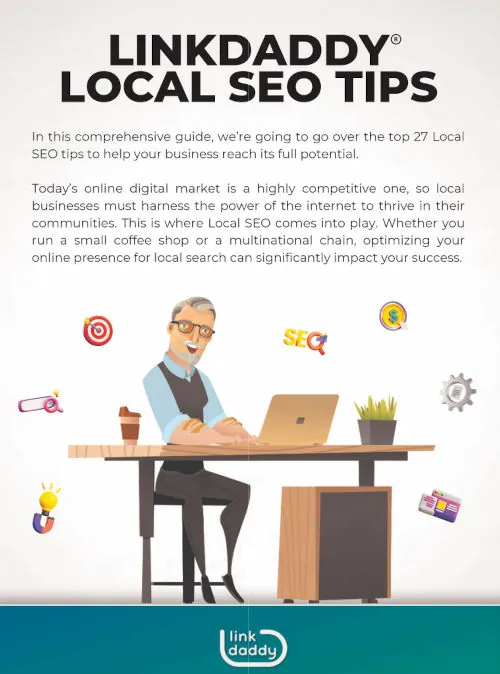
Cryptocurrency has the potential to significantly change the digital marketing industry in several ways. One of the main benefits of cryptocurrency is that it is based on blockchain technology, which is a secure and transparent way to store and transfer data. This can help reduce fraud and increase security in the digital marketing industry, especially when it comes to online transactions and the handling of sensitive customer data.
Cryptocurrency transactions often have much lower fees than traditional payment methods, such as credit cards or bank transfers. This can be particularly beneficial for small businesses and digital marketers who may be operating on tight budgets and looking to minimize costs.
Cryptocurrency is not tied to any specific country or region, which means it can be used to facilitate transactions between individuals and businesses in different parts of the world. This can make it easier for digital marketers to reach and engage with a global audience.
Cryptocurrency transactions also do not require the personal information to be shared, which can enhance user privacy and give people more control over their personal data. This can be particularly appealing to individuals who are concerned about data privacy and security.
Overall, the adoption of cryptocurrency in the digital marketing industry has the potential to increase security, reduce transaction costs, enhance cross-border accessibility, and improve user privacy. It is likely that we will see more and more digital marketers and businesses start to incorporate cryptocurrency into their operations in the future.
What is Cryptocurrency?

Cryptocurrency is a digital asset that uses cryptography for secure financial transactions. It is decentralized, meaning it is not controlled by any central authority such as a government or financial institution. Instead, it relies on a network of computers to validate and record transactions on a public ledger called a blockchain.
There are many different cryptocurrencies available, with the most well-known being Bitcoin. Other examples include Ethereum, Litecoin, and Ripple.
Cryptocurrency can be used in digital marketing in a variety of ways. For example, businesses and digital marketers can accept cryptocurrency as payment for products or services, either online or in-store. Cryptocurrency can also be used to facilitate cross-border transactions, making it easier for digital marketers to reach and engage with a global audience.
Cryptocurrency can be used by anyone who has access to a digital wallet, which is a software program that stores the user’s cryptocurrency and allows them to send and receive payments. Digital wallets can be accessed through a computer or a smartphone app, and they can be used to make purchases online or in-store at merchants who accept cryptocurrency.
Digital marketing platforms may be able to monetize through cryptocurrency by accepting it as payment for their services or by investing in cryptocurrency themselves. Similarly, businesses can utilize cryptocurrency for digital marketing by accepting it as payment for products or services, or by using it to facilitate transactions with customers or partners.
Cryptocurrency and Digital Marketing Trends

The integration of blockchain technology and cryptocurrency into the realm of digital marketing has garnered significant attention in recent years. Blockchain technology has the potential to revolutionize the way that digital content is created, shared, and protected. One of the key ways in which blockchain technology is being used to protect the ownership of digital content is through the use of non-fungible tokens, or NFTs. These unique digital assets can represent ownership of a wide variety of items, including art, collectibles, virtual real estate, and more. NFTs are stored on a blockchain, which provides a secure and transparent record of ownership. This means that the ownership of an NFT cannot be disputed, as the blockchain provides a clear and verifiable record of who owns the asset.
In addition to NFTs, blockchain technology is also being used to protect the ownership of digital content through the use of smart contracts. A smart contract is a self-executing contract with the terms of the agreement between buyer and seller being directly written into lines of code. These contracts are stored and replicated on a blockchain network, which makes them secure and transparent. Smart contracts can be used to automate the transfer of ownership of digital content, such as artwork or music, from one party to another. This helps to ensure that the ownership of digital assets is clear and cannot be disputed, and it also reduces the risk of fraud and other forms of digital content abuse.
Overall, the use of blockchain technology for content ownership protection is an important development that has the potential to revolutionize the way that digital content is created, shared, and protected. By providing a secure and transparent record of ownership, blockchain technology helps to ensure that the rights of content creators and owners are protected, while also making it easier for content to be shared and enjoyed by a wider audience.
Another trend that has been observed is the adoption of cryptocurrency as a method of payment for goods and services within the digital marketing industry. Companies have begun accepting cryptocurrency as a form of payment for their products or services, or for advertising on their platforms. This can be particularly useful for international transactions, as it allows for the transfer of funds without the need for currency exchange.
It is worth noting that the use of cryptocurrency and blockchain technology in digital marketing is a rapidly evolving field, and it is likely that new trends and developments will continue to emerge in the future.
NFTs in Content Marketing

Non-fungible tokens, or NFTs, are unique digital assets that can represent ownership of a wide variety of items, including art, collectibles, virtual real estate, and more. NFTs are stored on a blockchain, which provides a secure and transparent record of ownership. This means that the ownership of an NFT cannot be disputed, as the blockchain provides a clear and verifiable record of who owns the asset.
NFTs can be used in a variety of ways in content marketing. One way is by creating and selling NFTs as a way to engage with audiences and offer unique, collectible items. For example, a brand might create an NFT that represents ownership of digital artwork, and then sell the NFT to fans of the brand. This can be a way for the brand to build a deeper connection with its audience and offer something that is unique and highly coveted.
NFTs can also be used to create interactive, immersive experiences for audiences. For example, a brand might use NFTs to create an augmented reality (AR) marketing campaign, in which users can access and interact with AR content using their smartphones or other devices. By using NFTs to represent ownership of the AR content, the brand can ensure that the content is only accessible to users who have the appropriate NFT. This can help to create a sense of exclusivity and drive demand for the NFTs.
To create an NFT, an artist or creator typically starts by creating the digital asset that they want to represent, such as a piece of artwork or a virtual real estate property. They can then use a platform that specializes in creating NFTs, such as Ethereum or OpenSea, to create the NFT and list it for sale. The NFT is then stored on the blockchain, which provides a secure and transparent record of ownership.
Brands may use NFTs for augmented reality marketing because they provide a way to create immersive, interactive experiences for users that are unique and exclusive. By using NFTs to represent ownership of AR content, brands can ensure that the content is only accessible to users who have the appropriate NFT, which can help to create a sense of exclusivity and drive demand for the NFTs. In addition, the use of NFTs can help to protect the ownership and authenticity of the AR content, as the blockchain provides a secure and transparent record of ownership.
Could Crypto And AR Be The Future of Digital Marketing?
NFTs (non-fungible tokens) are digital assets that are unique and cannot be exchanged for other tokens or assets on a one-to-one basis. They are often used in the context of digital marketing as a way for brands to create unique, exclusive, and collectible experiences for their customers.
One example of how brands are using NFTs for digital marketing is through augmented reality (AR) campaigns. AR technology allows brands to create interactive and immersive experiences that can be accessed through a smartphone or other device. By incorporating NFTs into their AR campaigns, brands can create a sense of exclusivity and collectibility for their customers.
One example of a brand using NFTs in an AR campaign is Bored Ape Yacht Club, which launched a series of NFTs featuring AR experiences that could be unlocked by scanning a QR code. These NFTs included exclusive videos, music, and other digital content that could only be accessed through the NFTs. By using NFTs, Bored Ape Yacht Club was able to create a unique and engaging marketing campaign that resonated with their target audience.
Other brands are also using NFTs in their digital marketing campaigns in a variety of ways, such as offering exclusive access to events or products, creating limited edition digital collectibles, and offering unique experiences or perks to customers who purchase NFTs.
Another trend is for big brands to create and sell non-fungible tokens (NFTs) on the popular video game Minecraft. NFTs are unique digital assets that are stored on a blockchain and can represent ownership of a variety of items, including in-game items, art, and other collectibles.
To create NFTs for Minecraft, a brand would need to partner with a company that specializes in creating and managing NFTs on the blockchain. This company would work with the brand to design and develop the NFTs, which could include creating unique artwork or other digital assets to represent the NFTs.
Once the NFTs have been created, the brand can sell them through a marketplace or platform that supports NFTs, such as OpenSea or Raible. These platforms allow users to buy and sell NFTs using cryptocurrency, such as Ether (ETH).
It is important to note that creating and selling NFTs on Minecraft or any other platform is a complex process and requires specialized knowledge and expertise. Brands that are interested in creating and selling NFTs should carefully consider the resources and investment required to do so effectively.
The outlook for augmented reality (AR) with NFT marketing looks promising. As more brands begin to explore the use of NFTs in their marketing campaigns, it is likely that we will see an increase in the use of AR as a way to create immersive and interactive experiences for customers.
One of the key benefits of using AR in NFT marketing campaigns is the ability to create a sense of exclusivity and collectibility. By using NFTs to unlock AR experiences, brands can create a sense of scarcity and value for their customers, which can drive engagement and sales.
Additionally, the use of AR in NFT marketing campaigns allows brands to create more personalized and interactive experiences for their customers. This can help to build a stronger connection with the brand and increase customer loyalty. Overall, the outlook for AR with NFT marketing looks positive, as more brands are likely to adopt this technology in the coming years to create unique and engaging marketing campaigns.
The Bottom Line
Cryptocurrencies, blockchain technology, and non-fungible tokens (NFTs) have gained increasing attention in recent years, and their use in digital marketing is likely to continue to grow.
Cryptocurrencies, such as Bitcoin and Ethereum, have been used in a number of innovative ways in digital marketing, such as accepting them as payment for goods and services, using them to reward customers for loyalty or engagement, or even using them to pay for advertising.
Blockchain technology, which is the underlying technology behind cryptocurrencies, has also seen a variety of applications in digital marketing. For example, it can be used to track and verify the authenticity and provenance of products, to enable secure and transparent supply chain management, or to create decentralized autonomous organizations (DAOs) that can facilitate new types of online marketplaces and communities.
NFTs have also been used in a number of interesting ways in digital marketing, such as creating unique and limited edition experiences or products or using them to reward customers for loyalty or engagement.
Overall, the outlook for the use of cryptocurrencies, blockchain, and NFTs in digital marketing is positive, as these technologies offer a number of potential benefits and opportunities for innovation. However, it’s important to keep in mind that they are still emerging technologies, and it will take time to fully understand their potential and to develop best practices and standards for their use.









